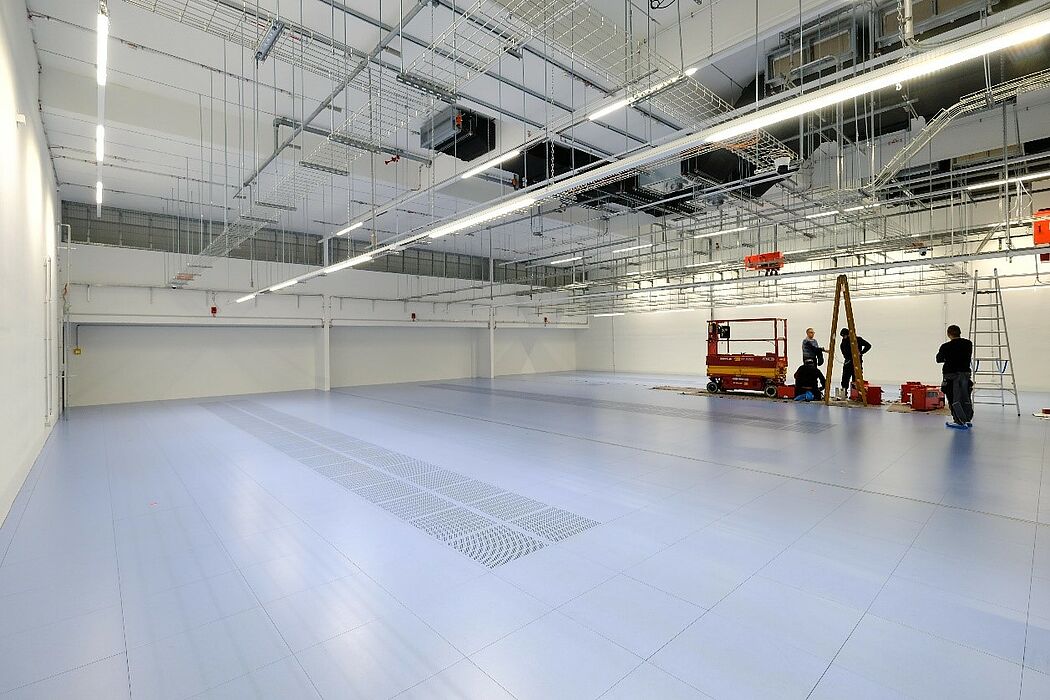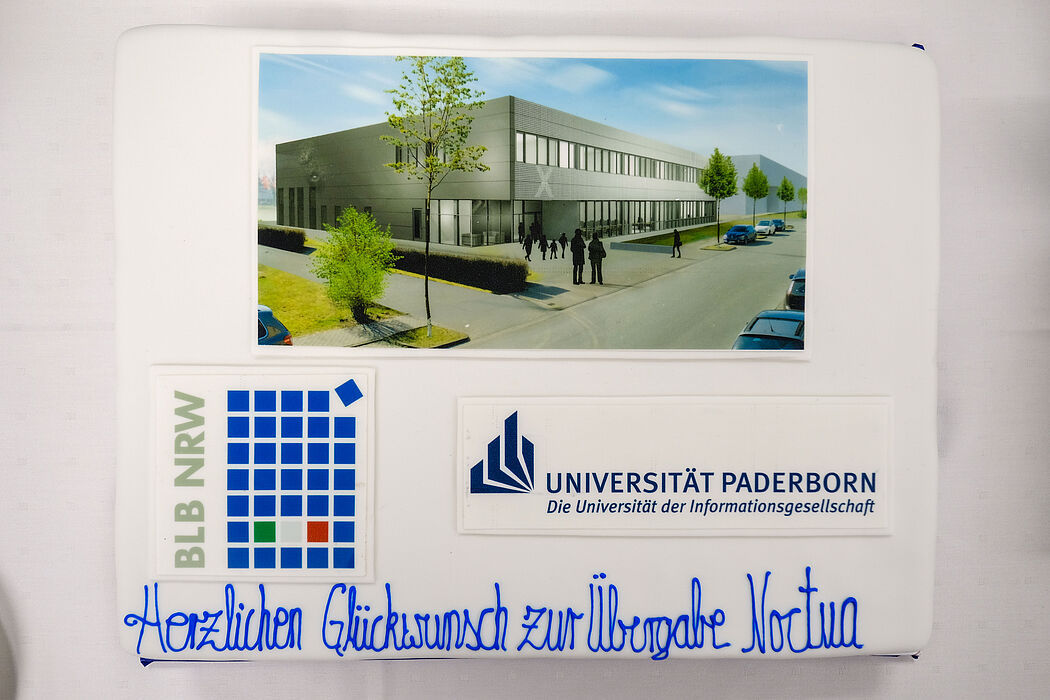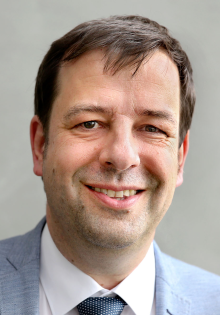The Bau- und Liegenschaftsbetrieb Nordrhein-Westfalen (BLB NRW) has completed and handed over the new high-performance computing center for Paderborn University. Now the installation of the second stage of the supercomputer Noctua, one of the fastest computers in Germany, can be started by the university.
This is where cutting-edge research finds its space: the Bau- und Liegenschaftsbetrieb Nordrhein-Westfalen handed over a new research building to the University of Paderborn on Friday in a small ceremony. On around 2,500 square meters, the two-story high-performance computing center on Mersinweg will be home to the Noctua supercomputer in the future. "We are pleased that Paderborn University will be able to expand its infrastructure in the field of computer-aided research with this trend-setting building and will thus occupy one of the top positions in Germany. The building is designed to accommodate future generations of HPC systems," said BLB NRW Managing Director Gabriele Willems. With the HPC (High Performance Computing) system, the university aims to better position itself in top international research. The heart of the high-performance computing center is the 340-square-meter computer hall, which provides enough space for the supercomputer and its possible expansion stages. In addition, office areas with workstations and an IT workshop for the staff of the PC² (Paderborn Center for Parallel Computing) as well as meeting, laboratory and training rooms for the users of the high-performance computer have been created in the research building.
Simone Probst, Vice President for Business and Human Resources at Paderborn University, praised the good cooperation with BLB NRW and pointed out the importance of the high-performance computing center for Paderborn as a university site: "A state-of-the-art IT infrastructure is essential for many scientific issues. That is why we are very pleased to be able to create even better conditions for top national and international research with Noctua 2 and the corresponding research building. We are thus enabling many new supraregional collaborations."
Noctua is intended to act as a virtual microscope, for example, in the development of new materials that produce hydrogen by using sunlight to split water (photocatalysis). With the help of computer simulations, the Paderborn researchers have already succeeded in increasing the efficiency of water splitting to record levels. They were able to understand and optimize the sequence of chemical reactions at the atomic level. By using "state-of-the-art" technology, Paderborn University has created the necessary basis for high-quality and rapid data evaluation. The use of innovative technologies covers the widest possible range of applications — e.g. elaborate simulations for physics and chemistry or machine learning, all of which require enormous computing power.
In 2018, the university had commissioned the first phase of the Noctua system in an existing building. In the new high-performance computing center, Noctua with the corresponding expansion stages is supposed to create significantly improved conditions in order to deepen the research work.
To ensure that the supercomputer always operates within the optimum temperature range, an extremely powerful yet energy-efficient cooling system with an output of 2 megawatts ensures perfect conditions in the new building. "The team at BLB NRW, together with the planners, paid special attention to the cooling system. Not only will it consume two-thirds less energy than in the previous building, but it will also support the building's heating system through heat recovery," explains Wolfgang Feldmann, head of the Bielefeld branch. At around 20 million euros, the project costs for the new building are within the limits set in advance. The federal government has supported the research building with funding of 7.55 million euros in accordance with a resolution of the Joint Science Conference (GWK).
Prof. Dr. Birgitt Riegraf, President of the University, emphasizes the central importance of Noctua for the strategic development of the University: "Noctua provides urgently needed computing power to compete internationally in science. It will make our research even more visible internationally."



